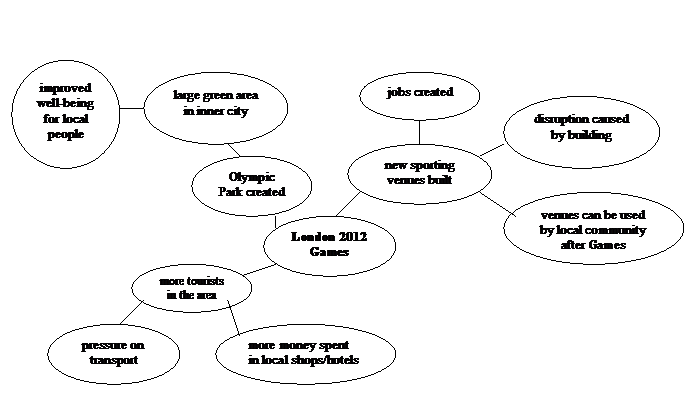Post-Primary
Sustainability and Legacy
Pupils will:
- be aware of how the organisers of the 2012 Games have embedded sustainability in their plans;
- explore the impact and consequences of a large-scale event such as the Olympic and Paralympic Games; and
- create a ‘bid’ for an international sporting competition.
Statutory Requirements:
Local and Global Citizenship
Pupils should have opportunities to investigate an issue from a range of viewpoints and suggest action that might be taken to improve or resolve the situation.
Geography
Pupils should have opportunities to develop a sense of place through the study of:
- a range of local, national, European and global contexts; and
- issues of topical significance.
Cross-Curricular Skills:
Using ICT
Pupils should be enabled to:
- access, select, interpret and research information from a range of digital sources; and
- use a range of contemporary digital methods to communicate, exchange and share their work.
Communication
Pupils should be enabled to:
- listen to and take part in discussions, explanations, role-plays and presentations; and
- find, select and use information from a range of sources.
Thinking Skills and Personal Capabilities:
Thinking, Problem solving and Decision making
Pupils will:
- make links between cause and effect; and
- examine options, weigh up pros and cons.
In this activity pupils will investigate how the organisers of the London 2012 Games embedded sustainability into their planning for the event as have Rio2016. They will discuss the importance of planning for sustainability and will debate the legacy of the 2012 Games. Pupils will conduct an investigation to find out if Northern Ireland could bid for a large international sporting event.
Activity
The First Sustainable Games?
A guarantee of sustainability has now become a key part of any country’s bid to host the Olympic and Paralympic Games. Ask your pupils to use the websites indicated in the ‘You will need’ section to research how the organisers of the 2012 Games have carried through the commitments to sustainability they made when they bid for the games and the undertakings Rio2016 have made. It might be useful to use the 5 commitments made by London2012 as the framework for their research.
- Climate change
- Waste
- Biodiversity
- Inclusion
- Healthy living:
Impact
Ask your pupils to name large public events that occur in their local area. As a class, consider the impact that this event has on the area it takes place in, for example more visitors to the area, more litter, some roads closed, more traffic, local shops are busier. As pupils give suggestions, record their ideas on the board and ask them to think about whether this is a positive or negative impact, or perhaps it has both negative and positive aspects.
Arrange your pupils into groups of four or five and ask them to create a Consequence Wheel about the London 2012 Games. Give each group an A3 sheet of paper; in the centre of the page ask them to write ‘London 2012 Olympic and Paralympic Games’.
Ask each group to reflect on what they learned during the previous research activity about the direct consequences of the London 2012 Games on east London. They can link the direct consequences to the central statement on the page. Then ask them to take each of these consequences and discuss what further impacts/effects they might have and write this on the wheel, connected to the relevant consequence.
For example (click to enlarge):
Encourage each group to think of as many consequences for each of the statements as they can and write them on their page. When they have finished, display all the diagrams in the class. Ask the groups to view each other’s ‘Consequence Wheels’ and discuss the differences and similarities in their diagrams. Then ask your pupils to role play different characters who will benefit or be disadvantaged by the event.
Counting the Cost
Hosting the 2012 Games cost the UK 9 billion pounds, that’s £142 per head for every person in the UK. Ask your pupils to consider why, when hosting the Games costs so much, so many cities are eager to host them. In addition to some of the benefits they may have researched in the previous activity, ask them to also consider issues such as prestige, status and civic pride.
In groups, ask your pupils to imagine a scenario where one of the pupils is a government minister and must answer questions in a press conference or in the House of Commons on the cost and benefits of hosting the Olympics. The group must come up with questions to put to the minister. They should then draft answers they think the minister might give. Ask each group to present their scenario to the rest of the class.
Bidding for Northern Ireland
Ask the class if they are aware of any international sporting events held locally (for example the Super Cup (previously The Milk Cup), the Irish Golf Open or North West 200. Brainstorm the positive and negative effects for Northern Ireland, if it were to host another major international sporting event.
Set a task for groups of pupils to create a 'bid' for Northern Ireland to host a major sporting event. This could be for whatever sport they have an interest in such as football, golf or athletics.
The groups must take into consideration what Northern Ireland currently has to offer (for example world-class golf courses) and what facilities and venues they would propose to construct (new accommodation for competitors, purpose-built, state of the art sporting facilities). Would they consider joint hosting using venues elsewhere in the UK or Republic of Ireland such as in Glasgow, Liverpool or Dublin?
Their final bid must consist of a three minute film clip or brochure. Groups must present their finished bid to the class and allow them to give feedback.
You will need
Consequence Wheelwww.ccea.org.uk
Research
Learning Legacylearninglegacy.independent
Sustainabilitywww.olympic.org
Sustainabilitywww.rio2016.com
Supercup NIwww.supercupni.com/
Lough Erne's hosting of the 2017 Irish Open appears in some doubtwww.bbc.co.uk
London 2012: UK public says £9bn Olympics worth itwww.bbc.co.uk


